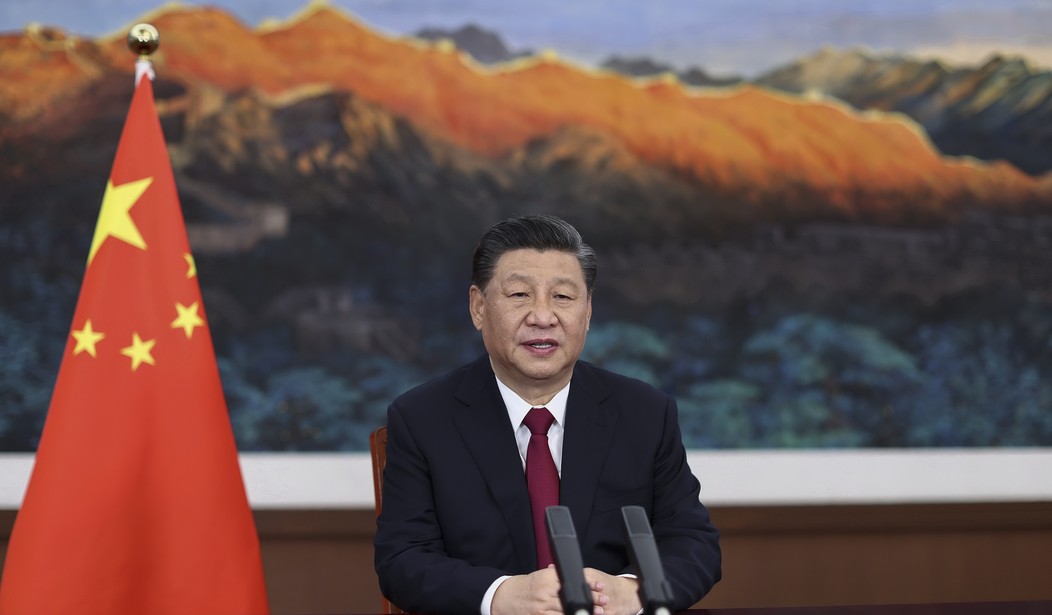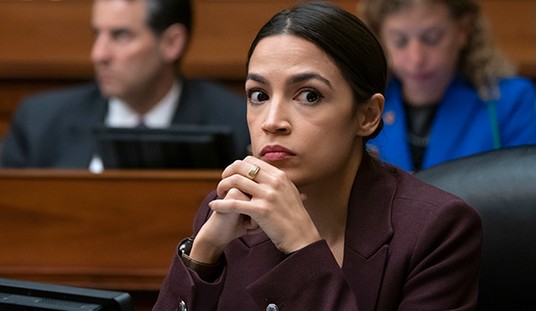At a time when the United States is bitterly divided by talks about this unbridgeable chasm of values, not just political parties in the United States, how does China hold itself together? The Chinese have launched a massive new campaign to create solidarity among the Chinese to make them truly one nation. They're not after true solidarity. They're not trying to include everyone. In fact, every now and then, the Chinese will launch an extermination campaign against the Muslims over here or the Falun Gong over there. They want to, nevertheless, create a unified China. And according to one source, a kind of a credible source, they're succeeding.
The source is Joe Tsai, one of the founders of the Chinese e-commerce giant Alibaba, a very successful company that has helped make him a multi-billionaire. He was interviewed recently on CNBC, and he was asked about China. And he said to stop complaining about China and that the Chinese people are happy.
That's a very striking statement: the Chinese people are happy.
Tsai went on to say that because they're happy, the Chinese people support the government that is making them happy. And when he was asked about the basis for this happiness, he said, "The China that I see, the large numbers of the population — I'm talking about 80 to 90 percent — are very very happy with the fact that their lives are improving every year. When I started Alibaba in 1999, the GDP (gross domestic product) was $800. Today, it's over $10,000. And if you talk to a parent in China and you ask them, 'are your children going to have a better life than you, most of them will say, 'absolutely yes. They're going to be educated, they're going to find good jobs. The economy is expanding.'"
The argument from Joe Tsai is based on economics, based on the idea that if a country can offer its citizens improving economic prospects, they're going to support the country, and they're going to support the government that's in power even if it is a communist government.
Recommended
This argument runs flatly athwart an argument made by political scientist Francis Fukuyama, my colleague at the Hoover Institution and a senior fellow at Stanford. Fukuyama, about 20 years ago, in his book "The End of History," said that regimes like China are bound to, if not collapse, feel the tension that arises because once you give people economic success, once you give them economic freedom, and they have, you may say, more stuff, they begin to ask for other things – "Hey, now I've got a refrigerator. Now I've got a microwave oven. Now I've got a cellphone. Okay, but now I want the right to free speech. And I want to be able to say what I think. I want artistic expression. I want to be able to not only espouse my religious faith at home, but I want to be able to talk about it. I want to be able to meet in a group."
In other words, economic rights lead to pressure for civil rights and civil liberties. That has, in fact, not happened in China. While the Chinese have liberalized on the economic front, they have tightened on the political front. Yes, there was Tiananmen Square in 1989, which was ruthlessly crushed, but since then, there has been no mass movement in China demanding civil rights, demanding the ability to speak – any of that.
But you have to remember historically that China never had this kind of freedom. China has always been an autocracy of one form or another.
The Chinese Communist Party took power in 1949, and then you had the Maoist regime for about 25 years, which was very repressive. There was economic liberalization under Deng Xiaoping, but that economic liberalization didn't bring any other type of liberalization. But going even further back, before the Communist Party, China was under repressive dynasties, one after the other. If you go to ancient times, you have the Han Dynasty, the Ming Dynasty, and then the Manchu Dynasty. Even in the early years before the communist takeover, there was repression all over China.
The one force that is very powerful in China, and the Chinese know it, and they're encouraging it, is the force of nationalism. Nationalism drove Sun Yat-sen in the early 20th century. Nationalism drove Mao. Mao was, in that sense, a national socialist, and his Cultural Revolution was based upon nationalism as well as communism. The new Chinese leader, Xi Jinping, announced several years ago now something called the "Chinese Dream."
Wow. So we have an American Dream, and Xi Jinping has a Chinese Dream.
Interestingly, the Chinese Dream is not like the American Dream. It's not individualistic. It's not, "You have a dream. Dinesh has a dream for his life in America." No, the Chinese Dream is a communal dream. It's a dream for the whole of China. They call it a "national revival" or a "national rejuvenation."
So what the Chinese are doing is appealing to nationalism. A nationalism, historically, that arises out of humiliation. There was a time some 500 years ago where the Chinese thought that they were on top of the world, the center of the world. In fact, when the Jesuits showed the maps that put China in one corner of the world, they refused to believe it – "These maps have to be wrong. China is at the center of the world."
But then China went into a period of humiliating decline, which became really evident after World War I. A national decline can also produce a powerful attachment to your country, a sense that "we have to make a comeback." The Chinese Communist Party is very clever in tapping into this vein of nationalism to give the Chinese the feeling that they are returning to greatness, a greatness that has been denied to them by history for the past 500 years.
All of this is worth noting because, at a time when the Chinese are emphasizing how their country is one China, how their country taps into patriotism and nationalism, we have in America the opposite trend. In our schools and universities, we have movements to convince young people to dislike America, dislike its traditions, dislike its symbols, revile its flag, and take a knee for its anthem. And this ideology is not confined to educational institutions, but it's permeating throughout society.
In his work "The Muqaddimah," Ibn Khaldun said that the power of a country is based not only upon the number of people but the way in which the people hang together, the way in which they come together as "one man," a sense of shared purpose, shared values. Nationalism is a way of codifying this.
To me, it is alarming on the international front that the Chinese are able successfully to tap into this unifying force of nationalism. By the way, Trump was appealing to American nationalism. But the Left is anti-nationalist. The Left emphasizes ethnic identity, ethnic allegiance – not national allegiance. The Left emphasizes, by the way, ethnic identity to all ethnicities except the white ethnicity. Blacks should be proud of being Black. Latinos should be proud of being Latino, but white people should be ashamed of being white. So there's a peculiarity to it, but the bottom line is it weakens the bonds of national unity and consciousness.
In this respect, it weakens the United States visa vis its main adversary, China.

























